Emotional Intelligence in Professional Client Relationships 2025

In 2025, emotional intelligence transforms how you manage client relationships. It influences job performance by 58%, boosts productivity by 20%, and enhances customer satisfaction by 30%. These figures highlight its growing importance in professional environments. Emotional intelligence helps you navigate therapy-like scenarios, such as handling emotional triggers during client interactions. For example, professionals with high emotional intelligence experience lower burnout levels, improving their ability to connect with clients effectively. Tools like Sobot's Voice/Call Center empower you to foster empathy and trust while maintaining seamless communication. By prioritizing emotional intelligence, you create meaningful connections and achieve better outcomes.
Understanding Emotional Intelligence in Client Interactions

Defining Emotional Intelligence in Professional Contexts
Emotional intelligence (EI) refers to your ability to recognize, understand, and manage emotions—both your own and those of others. In professional contexts, EI becomes a critical skill for navigating client interactions. It helps you adapt to diverse situations, whether you're resolving conflicts or building rapport with clients. Research highlights that EI practices significantly influence client satisfaction and project outcomes. For example, empathetic leadership fosters better communication and trust, leading to improved results across industries.

When you apply emotional intelligence in your work, you create a foundation for meaningful connections. Tools like Sobot's Voice/Call Center enhance this process by providing seamless communication channels, enabling you to focus on understanding client needs rather than managing technical hurdles. This integration of technology and emotional intelligence ensures smoother interactions and better outcomes for both you and your clients.
Key Components: Self-Awareness, Empathy, and Social Skills
Three key components define emotional intelligence in client interactions: self-awareness, empathy, and social skills.
- Self-Awareness: This involves understanding your strengths, weaknesses, and emotional triggers. When you recognize how your emotions impact your performance, you can adjust your approach to better serve clients.
- Empathy: Empathy allows you to identify and respond to the emotions of others. It includes understanding their perspective and sharing their feelings. For example, when a client expresses frustration, your empathetic response can turn a negative experience into a positive one.
- Social Skills: These skills help you build and maintain relationships. They include conflict resolution, influence, and collaboration, all of which are essential for managing client interactions effectively.
A study by Comarch reveals that 62% of customers feel an emotional connection to brands they frequently purchase from. By mastering these components, you can strengthen client relationships and foster loyalty. Sobot's Omnichannel Solution supports this by consolidating customer data, enabling personalized communication that aligns with these EI principles.
| Component | Description |
|---|---|
| Self-Awareness | Understanding one's strengths and weaknesses, and recognizing emotions and their impact on performance. |
| Empathy | Recognizing and responding to the emotions of others, crucial for effective communication and collaboration. |
| Social Skills | Essential for building and maintaining relationships, including influence and conflict management. |
The Role of Emotional Intelligence in Managing Customer Emotions
Managing customer emotions is a cornerstone of emotional intelligence. Clients often bring their frustrations, concerns, or even excitement into interactions. Your ability to navigate these emotions determines the success of the engagement. For instance, a customer who initially disliked everyone became open and referred others after emotional intelligence was applied to understand his concerns.
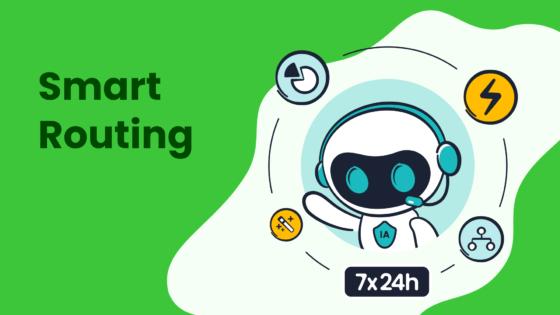
Statistics show that customer experience drives purchasing decisions for 73% of people, while poor service leads 49% of customers to abandon familiar brands. Emotional intelligence helps you address these challenges by fostering empathy and active listening. Sobot's Voice/Call Center enhances this process with features like call tracking and AI-powered Voicebot, which provide insights into customer sentiment and intent. These tools empower you to respond effectively, ensuring clients feel heard and valued.
| Outcome | Description |
|---|---|
| 40% Increase | A good customer experience can improve revenue and business outcomes by up to 40%. |
| 73% Importance | Customer experience is the main factor determining whether 73% of people purchase from a brand. |
| 49% Defection | 49% of customers walked away from familiar brands due to poor customer service in the last 12 months. |
Challenges in Managing Emotional Client Interactions
Emotional Stress and Burnout in Client-Facing Roles
Client-facing roles often expose you to high levels of emotional stress. Constantly managing client emotions can lead to burnout, which affects your performance and well-being. Studies reveal that 70.1% of professionals in these roles experience emotional exhaustion, while 48.5% report depersonalization.
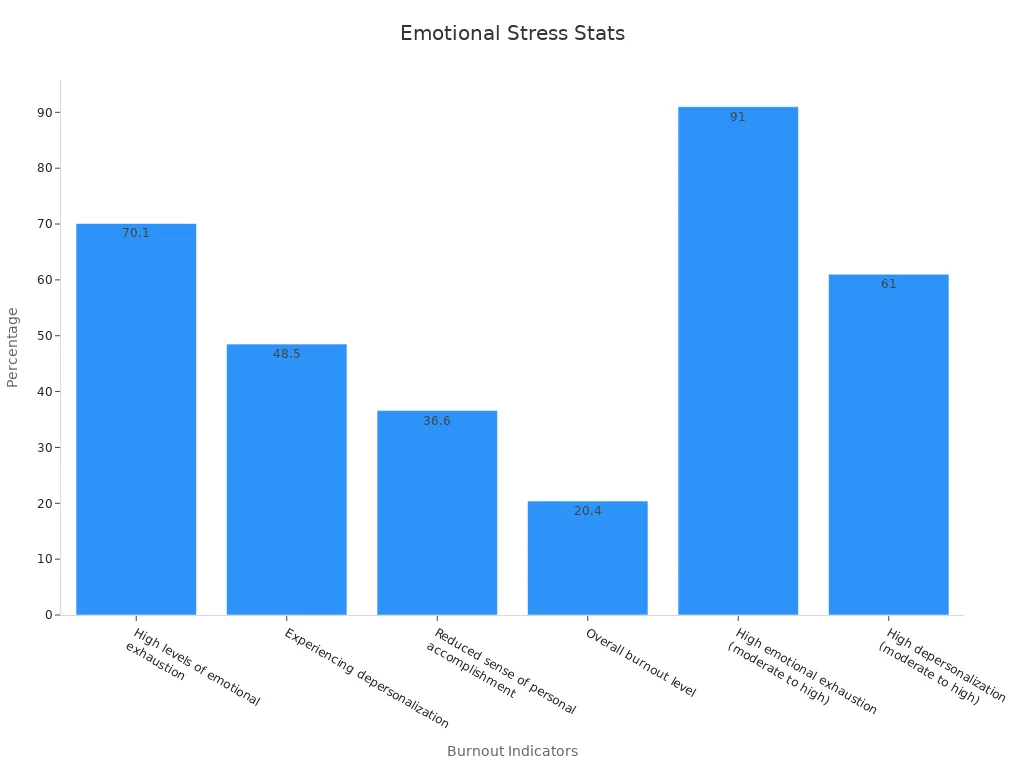
Burnout not only impacts your mental health but also reduces your ability to engage effectively with clients. Tools like Sobot's Voice/Call Center can help alleviate this burden. Features such as AI-powered Voicebot and call tracking streamline interactions, allowing you to focus on meaningful conversations rather than repetitive tasks. By leveraging such solutions, you can reduce emotional distress and improve your resilience in therapy-like scenarios.
Balancing Professional Boundaries and Emotional Engagement
Striking the right balance between professional boundaries and emotional engagement is essential. Over-engagement can lead to emotional exhaustion, while detachment may harm client relationships. Research on work-nonwork balance crafting (WNBC) highlights strategies to maintain this balance:
- Proactively manage your work and personal life to enhance well-being.
- Seek organizational support for flexibility and autonomy.
- Use crafting strategies to reduce work-home interference.
Sobot's Omnichannel Solution supports this balance by consolidating client interaction channels into a unified workspace. This integration reduces workload and allows you to focus on building genuine connections without overstepping boundaries. Personalized communication, enabled by AI-driven insights, ensures you remain empathetic while maintaining professionalism.
Navigating Difficult Conversations and Emotional Triggers
Difficult conversations often arise in client interactions, requiring emotional awareness and effective communication. Techniques like self-reflection and active listening can help you manage these situations. For example:
- Identify your feelings and needs before engaging with the client.
- Use "I" statements to express your emotions without assigning blame.
- Recognize emotional triggers in yourself and the client to maintain composure.
- De-escalate tension by acknowledging feelings or suggesting breaks.
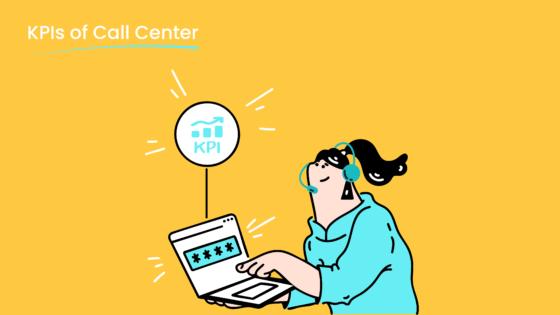
Sobot's Voice/Call Center enhances your ability to navigate these challenges. Features like real-time monitoring and AI-powered analytics provide insights into client emotions, helping you respond thoughtfully. By combining emotional intelligence with advanced tools, you can turn challenging interactions into opportunities for growth and trust-building.
Strategies for Enhancing Emotional Intelligence in Client Relationships
Fostering Empathy Through Active Listening
Active listening is a cornerstone of empathy and a vital skill in client interaction. When you actively listen, you focus entirely on the speaker, absorbing their words, tone, and emotional expression. This practice helps you understand their feelings and concerns, fostering a deeper connection. Research shows that teams with leaders who actively listen experience a 25% increase in productivity compared to those with top-down communication. Moreover, active listening by managers correlates with lower employee turnover rates and stronger organizational commitment.
| Outcome | Percentage |
|---|---|
| Feel more seen and valued | +64% |
| Feel more fulfilled at work | +40% |
| Are more satisfied with workplace culture | +40% |
| Want to stay longer | +3 years |
When you apply active listening in client interactions, you make clients feel valued and understood. This approach enhances the customer experience and builds trust. For example, Sobot's Omnichannel Solution consolidates client data into a unified workspace, enabling you to focus on listening and responding empathetically rather than juggling multiple platforms. By leveraging such tools, you can create meaningful connections and improve client satisfaction.
Managing Personal Emotions to Improve Client Interactions
Your ability to manage personal emotions directly impacts your effectiveness in client relationships. Emotional awareness allows you to recognize your feelings and regulate them during interactions. For instance, staying calm and composed when a client expresses frustration can de-escalate tension and foster a positive outcome. Emotions are a strong predictor of loyalty, highlighting the importance of emotional management in building lasting relationships.
The U.S. Department of Veteran Affairs reported that trust among veterans using their services reached over 90%, showcasing how emotional management strengthens client trust. Similarly, research indicates that therapists' personal quality of life affects their relationships with clients. By managing your emotions effectively, you can enhance client loyalty and trust. Tools like Sobot's Voice/Call Center support this process with features such as real-time monitoring and AI-powered analytics, helping you maintain emotional balance and respond thoughtfully to client needs.
Leveraging Tools Like Sobot's Voice/Call Center for Better Communication

Technology plays a crucial role in enhancing emotional intelligence during client interactions. Sobot's Voice/Call Center offers features that streamline communication and improve emotional engagement. For example, its AI-powered Voicebot provides intelligent interaction and intent recognition, enabling you to address client concerns effectively. Real-time call tracking and monitoring offer insights into client emotions, helping you tailor your responses to their needs.
The platform's unified workspace simplifies the management of client interactions, allowing you to focus on building empathy and trust. With a 99.99% system uptime and global network support, Sobot ensures seamless communication, even in high-pressure scenarios. By integrating these tools into your workflow, you can enhance your emotional intelligence and deliver exceptional customer experiences.
Building Resilience to Handle the Emotional Impact of Therapy-Like Scenarios
Handling emotionally charged client interactions can feel like navigating therapy sessions. These scenarios often require you to manage your own feelings while addressing the emotional expression of your clients. Building resilience becomes essential for maintaining your well-being and ensuring positive therapy outcomes.
1. Understand the Emotional Impact
Therapy-like scenarios in client interaction can evoke strong emotions. For example, a client may express frustration or sadness, which can affect your emotional state. Studies show that professionals in emotionally demanding roles are at higher risk of burnout. Recognizing this impact helps you prepare mentally and emotionally for such interactions.
2. Practice Self-Care
Self-care is a cornerstone of resilience. Engage in activities that recharge you emotionally, such as mindfulness, exercise, or hobbies. Research from the American Psychological Association highlights that mindfulness reduces stress by 25% and improves focus. By prioritizing self-care, you enhance your ability to manage emotional challenges effectively.
3. Develop Compassion and Empathy
Compassion strengthens your emotional connection with clients. When you approach interactions with empathy, you create therapeutic relationships that foster trust and understanding. For instance, acknowledging a client’s feelings can de-escalate tense situations and improve outcomes. Sobot's Voice/Call Center supports this by providing real-time insights into client emotions, enabling you to respond with empathy and precision.
4. Leverage Technology for Support
Technology can play a vital role in building resilience. Tools like Sobot's Voice/Call Center offer features such as AI-powered Voicebot and call tracking. These tools reduce the cognitive load by automating repetitive tasks, allowing you to focus on meaningful client interactions. With a 99.99% system uptime, Sobot ensures seamless communication, even during high-pressure situations.
5. Seek Professional Development
Continuous learning enhances your ability to handle therapy-like scenarios. Attend workshops or training sessions on emotional intelligence and resilience. Many organizations now offer programs that teach techniques for managing emotional stress and improving client relationships. For example, emotional intelligence training can increase your ability to navigate difficult conversations by 30%.
6. Build a Support Network
A strong support network provides emotional and professional backing. Share your experiences with colleagues or mentors who understand the challenges of client-facing roles. Peer support can offer new perspectives and coping strategies, helping you build resilience over time.
Tip: Use Sobot's Omnichannel Solution to streamline client communication. Its unified workspace consolidates data, reducing stress and enabling you to focus on building therapeutic relationships.
By implementing these strategies, you can handle the emotional demands of client interactions with confidence. Resilience not only improves your well-being but also enhances your ability to create meaningful connections and achieve better therapy outcomes.
Benefits of Emotional Intelligence in Professional Client Relationships
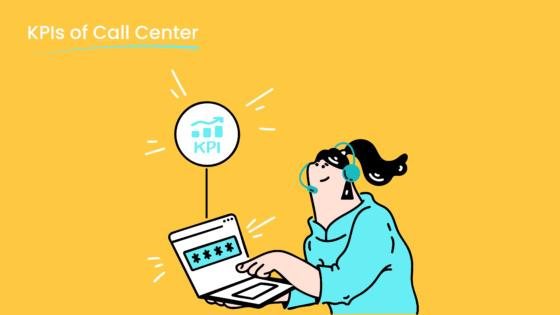
Strengthening Trust and Loyalty in Client Interactions
Emotional intelligence plays a vital role in building trust and loyalty during client interactions. When you demonstrate empathy and emotional awareness, clients feel valued and understood. This emotional connection fosters long-term loyalty. Studies show that emotional intelligence increases brand trust by 52% and brand loyalty by 55.4%. These figures highlight how understanding customer emotions can transform relationships into lasting partnerships.
For example, when you use tools like Sobot's Omnichannel Solution, you can consolidate customer data into a unified workspace. This allows you to personalize communication and address client concerns effectively. By leveraging such technology, you enhance the emotional expression in your interactions, making clients feel heard and appreciated. This approach not only strengthens trust but also ensures better client retention.
Enhancing Problem-Solving and Conflict Resolution Skills
Your ability to manage emotions directly impacts your problem-solving and conflict resolution skills. Emotional intelligence enables you to approach challenges with compassion and clarity. For instance, Johnson & Johnson used emotionally intelligent communication during a product recall crisis, achieving a 92% customer satisfaction rating within a year. Similarly, organizations that implement emotional intelligence training report a 60% reduction in conflicts, leading to improved cooperation.
Sobot's Voice/Call Center supports this by providing real-time insights into customer emotions. Features like AI-powered Voicebot and call tracking help you understand client concerns and respond thoughtfully. By combining emotional awareness with advanced tools, you can resolve conflicts efficiently and improve therapy outcomes in emotionally charged scenarios.
Improving Team Collaboration and Customer Satisfaction
High emotional intelligence fosters better collaboration and enhances the customer experience. Teams with emotionally intelligent members often perform better and create a positive work environment. A CareerBuilder study found that 71% of employers prioritize emotional intelligence over IQ, linking it to improved teamwork. Additionally, Google's Project Aristotle revealed that teams with high psychological safety, a result of emotional intelligence, saw a 20% performance increase.
When you integrate Sobot's Omnichannel Solution into your workflow, you streamline communication across channels, enabling seamless collaboration. This unified approach not only boosts team productivity but also improves customer satisfaction. After implementing emotional intelligence training, teams reported an 88% increase in customer satisfaction ratings. By prioritizing emotional intelligence, you create a supportive environment that benefits both your team and your clients.
Achieving Better Outcomes with Sobot's Omnichannel Solutions
Sobot's Omnichannel Solutions revolutionize how you manage client interactions. By integrating communication channels into a unified workspace, you eliminate disjointed systems and create seamless experiences. This approach enhances efficiency and satisfaction, ensuring better outcomes for both you and your clients.
Key Benefits of Sobot's Omnichannel Solutions
- Improved Efficiency: Over 70% of Sobot’s contact center business stems from system upgrades. These upgrades streamline operations, reducing waiting times by 35%.
- Enhanced Accuracy: Sobot’s AI platform delivers over 80% correct answers, ensuring clients receive reliable information.
- Higher Satisfaction Rates: A CSAT score of 97% reflects the positive impact of Sobot’s solutions. Additionally, 95% of customers report satisfaction with the service.
- Effective Problem Resolution: Sobot resolves 85% of issues efficiently, with 99% of customers expressing happiness with the service.
Real-World Impact
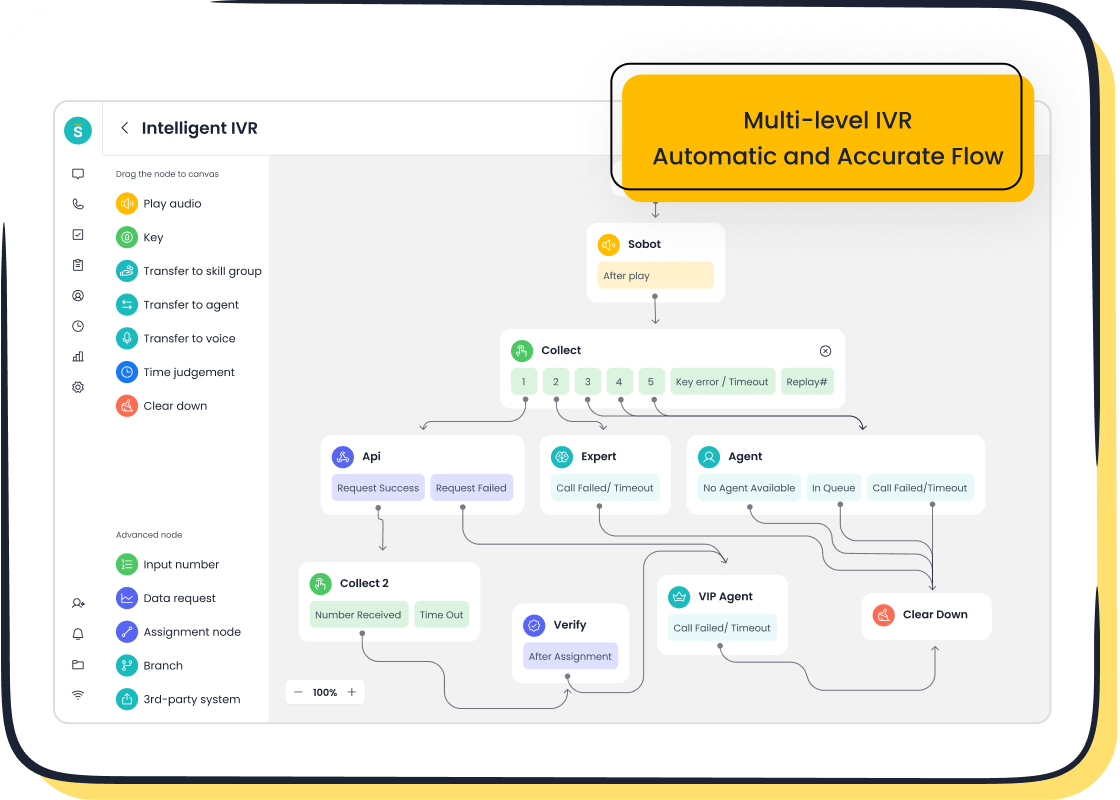
Imagine a scenario where a client faces frustration due to fragmented communication. Sobot’s Omnichannel Solution consolidates all channels—voice, email, chat, and social media—into one platform. This integration allows you to access client data instantly, respond promptly, and address concerns effectively. For example, a retail business using Sobot’s solution reported a 20% increase in customer retention due to faster and more personalized responses.
Why Choose Sobot?
Sobot’s Omnichannel Solution doesn’t just simplify communication; it transforms it. With AI-driven automation, you reduce repetitive tasks and focus on meaningful interactions. The unified workspace empowers you to deliver personalized service, fostering trust and loyalty. Whether you’re in retail, finance, or education, Sobot’s solutions adapt to your industry needs, ensuring exceptional client experiences.
Tip: Leverage Sobot’s analytics tools to monitor performance and optimize your team’s workflow. These insights help you continuously improve client satisfaction and operational efficiency.
By adopting Sobot’s Omnichannel Solutions, you achieve better outcomes in client relationships. The combination of advanced technology and emotional intelligence creates a powerful foundation for success.
The Future of Emotional Intelligence in Client Relationships
Emerging Trends in Emotional Intelligence Training for Professionals
Emotional intelligence training is evolving to meet the demands of modern workplaces. Organizations now recognize its importance in leadership and team dynamics. You’ll notice a growing emphasis on emotional intelligence as a key skill for adapting to change and fostering collaboration. Learning and Development (L&D) managers increasingly prioritize these skills to build resilience within teams.
Training programs are also becoming more personalized. AI-driven platforms tailor learning experiences to your specific needs, making the process more effective. For example, TalentSmart’s research shows that 90% of top performers possess high emotional intelligence. This statistic underscores the value of developing these skills to achieve workplace success.
By investing in emotional intelligence training, you enhance your ability to navigate complex client interactions. Tools like Sobot’s Omnichannel Solution can complement this training by providing insights into customer behavior, enabling you to apply your skills effectively.
The Role of AI and Technology in Supporting Emotional Intelligence
AI is transforming how you approach emotional intelligence in client interactions. Advanced tools analyze vocal tones, facial expressions, and historical data to predict emotions and tailor responses. For instance, empathy algorithms continuously learn and improve, helping you engage with clients more effectively.
Industries like healthcare and retail already benefit from these innovations. Aidoc uses AI to address patient anxieties, while Sephora analyzes customer sentiments to turn frustrations into opportunities. These examples highlight how technology enhances trust and outcomes.
Sobot’s Voice/Call Center integrates similar AI capabilities. Features like real-time call tracking and AI-powered Voicebot provide insights into client emotions, empowering you to respond with empathy. This combination of technology and emotional intelligence ensures meaningful connections and better results.
Innovations in Client Interaction Management with Sobot's Solutions
Sobot’s solutions lead the way in client interaction management. For example, Delta Airlines’ "Ask Delta" chatbot streamlines customer interactions, reducing wait times and improving engagement. Similarly, Maruti Suzuki’s AI chatbot handles millions of queries, facilitating bookings and boosting efficiency.
| Case Study | Description | Impact on Client Interaction Management |
|---|---|---|
| Delta Airlines | 'Ask Delta' chatbot streamlining customer interactions | Reduced wait times and enhanced customer engagement |
| Maruti Suzuki | AI chatbot engaging over 400,000 users and handling millions of queries | Facilitated thousands of bookings and improved operational efficiency |
Sobot’s Omnichannel Solution offers similar benefits. By unifying communication channels, it simplifies workflows and enhances client satisfaction. This innovation allows you to focus on building trust and loyalty, ensuring exceptional outcomes in every interaction.
Predictions for Emotional Intelligence in 2025 and Beyond
Emotional intelligence will continue to evolve as a cornerstone of professional success. By 2025, you will see its influence expand across industries, shaping how you interact with clients and manage therapy-like scenarios. Research predicts that 90% of top-performing professionals will rely on emotional intelligence to navigate complex challenges. This trend highlights its growing importance in fostering trust and loyalty.
1. AI-Powered Emotional Insights
Artificial intelligence will play a pivotal role in enhancing emotional intelligence. Tools will analyze vocal tones, facial expressions, and text patterns to predict emotions. For example, Sobot’s Voice/Call Center already uses AI-powered Voicebot to recognize client intent and sentiment. By 2025, these technologies will become more advanced, helping you respond with empathy and precision.
2. Personalized Emotional Intelligence Training
Training programs will become more tailored to your needs. AI-driven platforms will assess your emotional strengths and weaknesses, offering customized learning paths. This approach will help you master emotional intelligence faster and apply it effectively in therapy-like interactions.
3. Integration of Emotional Intelligence in Leadership
Leaders will increasingly prioritize emotional intelligence to inspire teams and improve collaboration. Studies show that emotionally intelligent leaders boost team productivity by 20%. By 2025, organizations will embed emotional intelligence into their leadership development programs, ensuring better outcomes for both employees and clients.
4. Enhanced Client Interaction Tools
Technology will continue to simplify client interactions. Sobot’s Omnichannel Solution already consolidates communication channels into a unified workspace, enabling seamless and personalized service. Future innovations will further streamline workflows, allowing you to focus on building emotional connections with clients.
5. Emotional Intelligence as a Competitive Advantage
Companies will view emotional intelligence as a key differentiator. Brands that excel in emotional engagement will outperform competitors in customer satisfaction and loyalty. For example, businesses using Sobot’s solutions report a 95% satisfaction rate, showcasing the impact of emotionally intelligent tools.
Tip: Stay ahead by integrating emotional intelligence into your daily interactions. Use tools like Sobot’s Voice/Call Center to enhance your ability to connect with clients and achieve better outcomes.
By 2025, emotional intelligence will redefine professional relationships. Its integration with AI and personalized training will empower you to navigate challenges with empathy and resilience. These advancements will not only improve client satisfaction but also elevate your career success.
Emotional intelligence transforms how you connect with clients, fostering trust and loyalty while improving outcomes. Companies like Marriott International and Johnson & Johnson have seen customer satisfaction rise by up to 90% through empathy-driven strategies. By adopting emotional intelligence, you enhance communication, resolve conflicts effectively, and build lasting relationships. Tools like Sobot's Voice/Call Center simplify this process, offering features that support empathetic and seamless interactions. Prioritize emotional intelligence development to stay ahead in 2025. Explore innovative solutions and training to strengthen your skills and create meaningful client connections.
FAQ
What is emotional intelligence, and why is it important in client relationships?
Emotional intelligence is your ability to recognize, understand, and manage emotions. It helps you build trust, resolve conflicts, and improve communication. Studies show that emotionally intelligent professionals achieve 20% higher productivity and 30% better customer satisfaction. Tools like Sobot's Voice/Call Center enhance these interactions seamlessly.
How can emotional intelligence reduce burnout in client-facing roles?
Emotional intelligence helps you manage stress and emotional triggers effectively. Research reveals that 70.1% of professionals experience emotional exhaustion. Sobot's AI-powered Voicebot reduces repetitive tasks, allowing you to focus on meaningful conversations and improve resilience in therapy-like scenarios.
How does Sobot's Omnichannel Solution support emotional intelligence?
Sobot's Omnichannel Solution consolidates communication channels into a unified workspace. This integration simplifies workflows, enabling you to focus on empathy and personalized service. Businesses using Sobot report a 95% customer satisfaction rate, showcasing its impact on emotional engagement.
Can emotional intelligence improve conflict resolution skills?
Yes, emotional intelligence enhances your ability to approach conflicts with empathy and clarity. For example, Johnson & Johnson achieved a 92% satisfaction rate during a crisis by using emotionally intelligent communication. Sobot's Voice/Call Center provides real-time insights to help you resolve conflicts effectively.
What role does AI play in emotional intelligence?
AI analyzes vocal tones, text patterns, and customer data to predict emotions. Sobot's Voice/Call Center uses AI-powered Voicebot to recognize client intent and sentiment, enabling empathetic responses. By combining AI with emotional intelligence, you create meaningful connections and achieve better outcomes.
See Also
Best 10 Speech Analysis Tools for Call Centers 2024
Leading 10 Analytics Software for Call Centers in 2024
Best 10 AI Solutions for Enterprise Contact Centers
